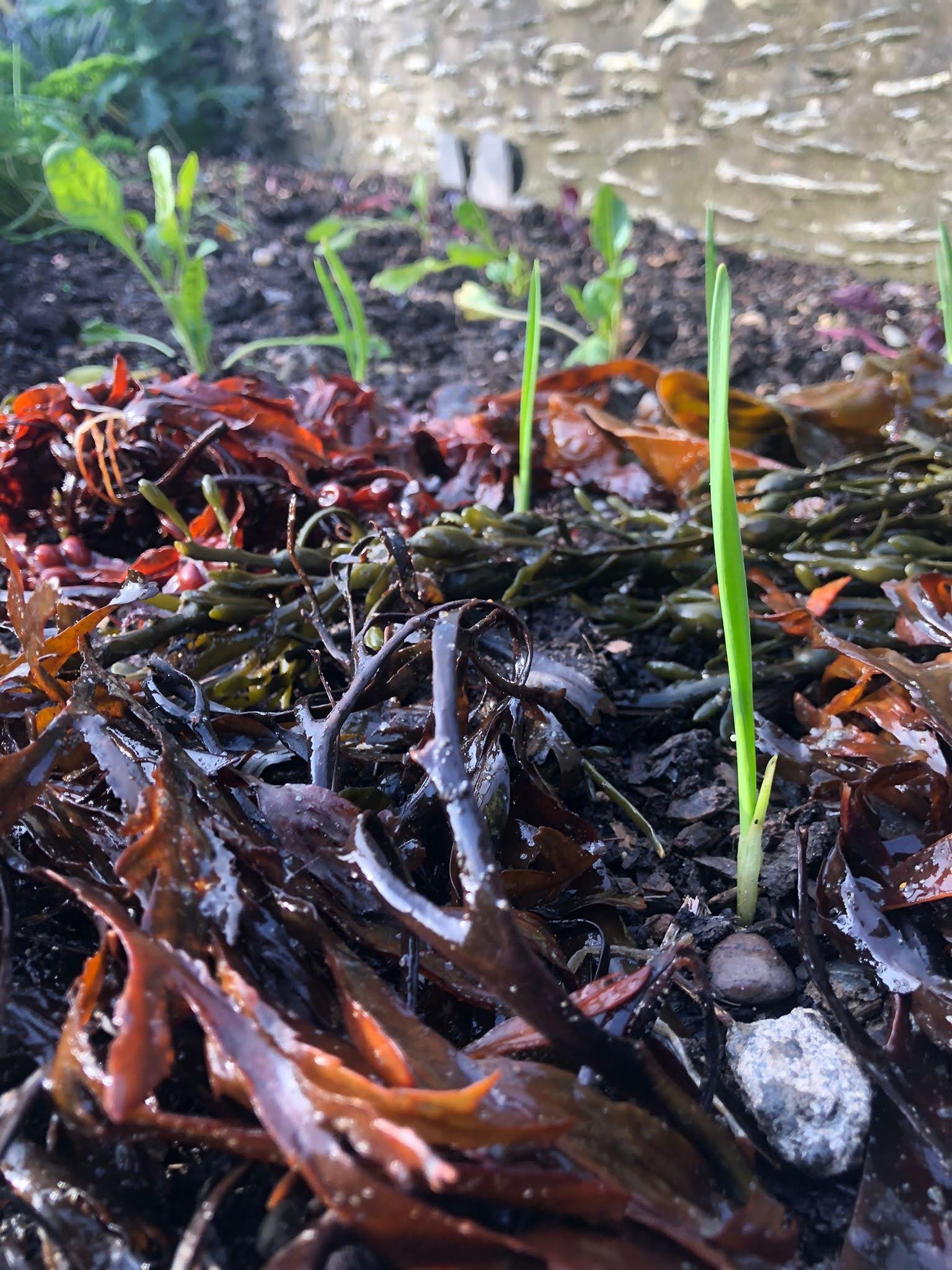Soil improver - mulch
Gwymona in Welsh means 'to gather seaweed (for fertiliser)' - suggesting it was used so much in the past it was given its own verb.
Seaweed puts up with a lot - it's constantly thrashed about by waves, tides and currents - so it has evolved to be rubbery and flexible.
Alginate, an alginic acid compound, is key to this suppleness. Amazingly, when seaweed breaks down in soils, this alginic acid attaches to naturally existing metal molecules.
This strengthens the soil structure, providing aeration and water-holding capacity. As seaweed breaks down it also increases the colony count and metabolic activity of microbes in the soil and provides multiple macro and micro nutrients.
The slight saltiness can also put off slugs and snails - a little bonus!
Top tip: To avoid a decomposing smell cover it with another mulch or simply add the seaweed to a compost bin.
Another top tip: Only collect seaweed which is hanging about between the high tide mark and the water. This means you wont be removing an established habitat or food source.
Reference: https://www.frontiersin.org/articles/10.3389/fpls.2019.00655/full










